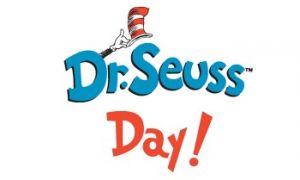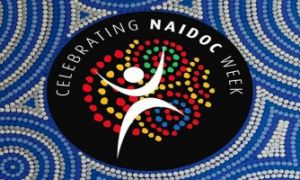

Effective communication is at the heart of every productive workplace but more so in sectors like ECE where so much depends on positive interactions between key stakeholders, like children, educators, families, management and providers. Non-verbal cues are an integral part of communication as they can complement and reinforce but also contradict and undermine verbal messages. The following article provides information on What Is Non-Verbal Communication, Why It Is Important, How To Use Non-Verbal Communication In The Workplace and more.
As part of their educational programmes, early education and care services may be situated in or travel to bush environments where it is known that snakes may be active and present. Although they are more common in the spring or summer, snakes can be found throughout the year, especially on sunny days. The following article provides information on What Attracts Snakes Into The Outdoor Area or Early Childhood Service, How Can We Snake-proof Our Service, Strategies to Implement To Minimise The Risk Of Snakes and more.
In the early education context, assessment for learning is best practised as a “process of gathering and analysing information as evidence about what children know, can do and understand”, according to the EYLF. The approved learning framework is categorical that such assessment should be “part of an ongoing cycle that includes planning, documenting and evaluating”. Such ongoing processes lie at the heart of formative assessment practices. The following article provides information on What Is Formative Assessment Practices, Formative Assessment Regulatory Guidelines, and Benefits Of Formative Assessment and more.
Consequences are one of the most effective principles of behaviour management in ECEC settings, as they show children the probable results of their own actions. There are two types of consequences used most often – natural and logical. The following article provides information on Natural consequences, How To Use Natural consequences, Logical consequences and more.
Both the Principles and Practices of EYLF place great significance on the nature of child-educator interactions. The following article provides information on What Are Positive Interactions, Developing Positive Interactions, Strategies and more.
Play is a process that is freely chosen, personally directed and intrinsically motivated. In this sense, children’s play happens when children determine and control the content and intent of their play, following their own instincts, ideas and interests, in their own way for their own reasons. The following article provides an overview of the different roles of educators in play and how each can be best performed in an ECEC setting.
Saying sorry is among the earliest lessons in interpersonal behaviour that children learn when growing. There are indeed many benefits of an apology but adults forget that almost always they depend on both sides genuine feeling the emotions rather than being forced to go through the motions. The following article provides strategies to support children to say sorry more meaningfully.
Interactions with children and families lie at the heart of ECEC practices. Early educators as a result may find themselves frequently facing ethical issues which are all too common in professions revolving around human relationships with their spectrum of rights, responsibilities, needs and desires. The following article provides information on Identifying Ethical Issues, Ethical Responsibilities, Case Study and more.
Transitions are among the most significant factors that determine the well-being of young children. Their sense of ease, ability to learn and the nature of attachments are vastly impacted by how they experience transitions in the ECEC setting. The following article provides information on Theories and Transitions, Different Types Of Transitions, Benefits Of Planning Transitions With Families and Children and more.
The structure and organisation of a learning environment can have immense impact on all aspects of a child’s development, ranging from physical and cognitive to social and emotional growth. The following article provides information on What Are Interest Areas and Their Benefits, Common Interest Areas, Guidelines For Planning Interest Areas and more.
 Here is the list of the EYLF Learning Outcomes that you can use as a guide or reference for your documentation and planning. The EYLF… Read More
Here is the list of the EYLF Learning Outcomes that you can use as a guide or reference for your documentation and planning. The EYLF… Read More
 The EYLF is a guide which consists of Principles, Practices and 5 main Learning Outcomes along with each of their sub outcomes, based on identity,… Read More
The EYLF is a guide which consists of Principles, Practices and 5 main Learning Outcomes along with each of their sub outcomes, based on identity,… Read More
 This is a guide on How to Write a Learning Story. It provides information on What Is A Learning Story, Writing A Learning Story, Sample… Read More
This is a guide on How to Write a Learning Story. It provides information on What Is A Learning Story, Writing A Learning Story, Sample… Read More
 One of the most important types of documentation methods that educators needs to be familiar with are “observations”. Observations are crucial for all early childhood… Read More
One of the most important types of documentation methods that educators needs to be familiar with are “observations”. Observations are crucial for all early childhood… Read More
 To support children achieve learning outcomes from the EYLF Framework, the following list gives educators examples of how to promote children's learning in each individual… Read More
To support children achieve learning outcomes from the EYLF Framework, the following list gives educators examples of how to promote children's learning in each individual… Read More
 Reflective practice is learning from everyday situations and issues and concerns that arise which form part of our daily routine while working in an early… Read More
Reflective practice is learning from everyday situations and issues and concerns that arise which form part of our daily routine while working in an early… Read More
 Within Australia, Programming and Planning is reflected and supported by the Early Years Learning Framework. Educators within early childhood settings, use the EYLF to guide… Read More
Within Australia, Programming and Planning is reflected and supported by the Early Years Learning Framework. Educators within early childhood settings, use the EYLF to guide… Read More
 When observing children, it's important that we use a range of different observation methods from running records, learning stories to photographs and work samples. Using… Read More
When observing children, it's important that we use a range of different observation methods from running records, learning stories to photographs and work samples. Using… Read More
 This is a guide for educators on what to observe under each sub learning outcome from the EYLF Framework, when a child is engaged in… Read More
This is a guide for educators on what to observe under each sub learning outcome from the EYLF Framework, when a child is engaged in… Read More
 The Early Years Learning Framework describes the curriculum as “all the interactions, experiences, activities, routines and events, planned and unplanned, that occur in an environment… Read More
The Early Years Learning Framework describes the curriculum as “all the interactions, experiences, activities, routines and events, planned and unplanned, that occur in an environment… Read More

On 2nd March, it is Dr Seuss Day. It is a day that celebrates the...
See more...
NAIDOC Week 2022 starts from 3 July to 10 July. NAIDOC Week celebrations are held...
See more...
This is a guide on How to Write a Learning Story. It provides information on...
See more...© 2009-2025 Aussie Childcare Network Pty Ltd. All Rights Reserved.

